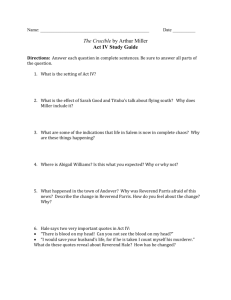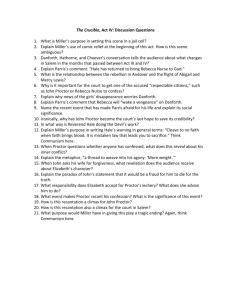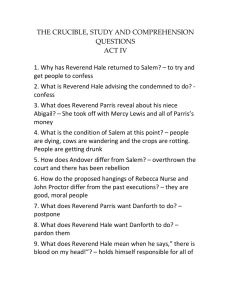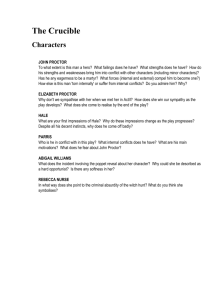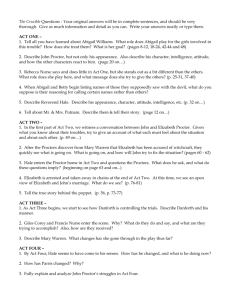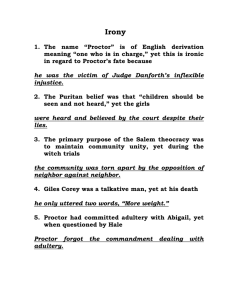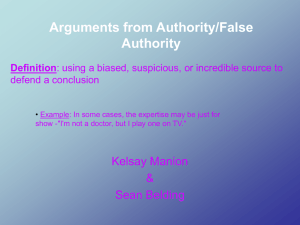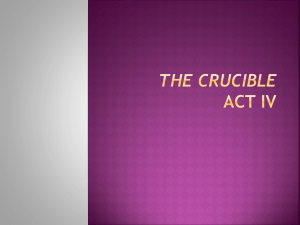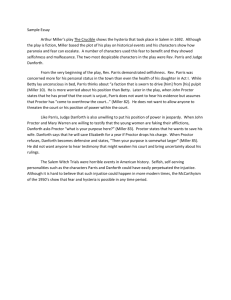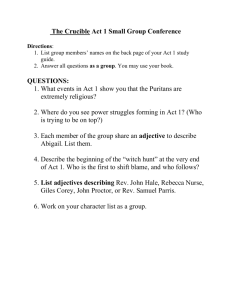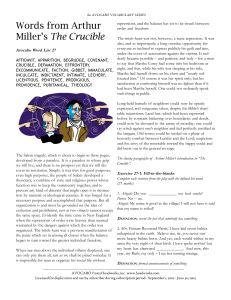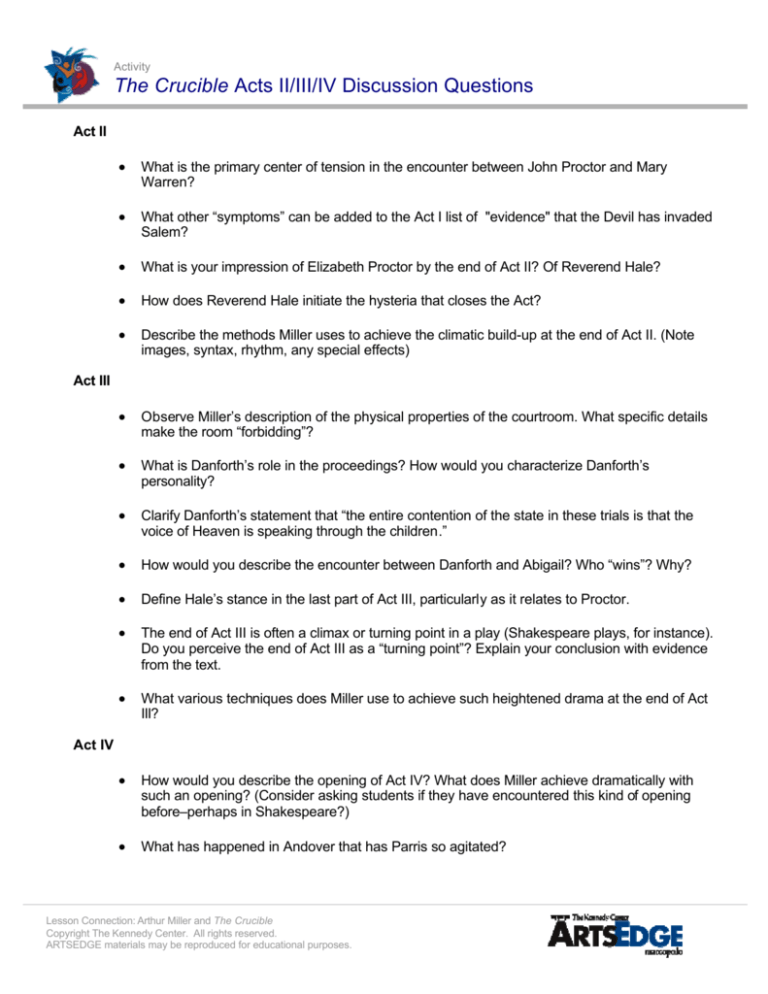
Activity
The Crucible Acts II/III/IV Discussion Questions
Act II
•
What is the primary center of tension in the encounter between John Proctor and Mary
Warren?
•
What other “symptoms” can be added to the Act I list of "evidence" that the Devil has invaded
Salem?
•
What is your impression of Elizabeth Proctor by the end of Act II? Of Reverend Hale?
•
How does Reverend Hale initiate the hysteria that closes the Act?
•
Describe the methods Miller uses to achieve the climatic build-up at the end of Act II. (Note
images, syntax, rhythm, any special effects)
•
Observe Miller’s description of the physical properties of the courtroom. What specific details
make the room “forbidding”?
•
What is Danforth’s role in the proceedings? How would you characterize Danforth’s
personality?
•
Clarify Danforth’s statement that “the entire contention of the state in these trials is that the
voice of Heaven is speaking through the children.”
•
How would you describe the encounter between Danforth and Abigail? Who “wins”? Why?
•
Define Hale’s stance in the last part of Act III, particularly as it relates to Proctor.
•
The end of Act III is often a climax or turning point in a play (Shakespeare plays, for instance).
Do you perceive the end of Act III as a “turning point”? Explain your conclusion with evidence
from the text.
•
What various techniques does Miller use to achieve such heightened drama at the end of Act
III?
•
How would you describe the opening of Act IV? What does Miller achieve dramatically with
such an opening? (Consider asking students if they have encountered this kind of opening
before–perhaps in Shakespeare?)
•
What has happened in Andover that has Parris so agitated?
Act III
Act IV
Lesson Connection: Arthur Miller and The Crucible
Copyright The Kennedy Center. All rights reserved.
ARTSEDGE materials may be reproduced for educational purposes.
Page 2 of 2
•
What is Reverend Hale doing that brings “hope”? Why does Danforth suggest that Hale has
been preaching in Andover?
•
What is the “good purpose” Parris refers to? How will "unconfessed and claiming innocence"
contribute to “our good purpose {being} lost in their tears”?
•
What, in your perception, has contributed to Parris’s apparent “softening” in attitude?
•
What "evidence" does Hale give of the effect of the witchcraft accusations on the town? (Ask
students if they remember any other literary sources that detail a “curse on the land”? –
possible responses: the curse on Thebes in Oedipus Rex; a passage from Shakespeare’s
Julius Caesar)
•
What "law" is Danforth referring to in his assertion: "I should hang ten thousand that dared to
rise against the law, and an ocean of salt tears could not melt the resolutions of the statutes”?
•
What is the implication in Elizabeth’s statement that Giles "died Christian under the law"?
•
What is it that Proctor refuses to do to help his sons "walk like men in the world"?
•
Explain what Elizabeth means as, with a "cry," she calls out "He (Proctor) have his goodness
now. God forbid I take it from him!"
•
What dramatic statement, in your perception, does Miller punctuate with his closing simile "the
drums rattle like bones in the morning air"?
Lesson Connection: Arthur Miller and The Crucible
Copyright The Kennedy Center. All rights reserved.
ARTSEDGE materials may be reproduced for educational purposes.

